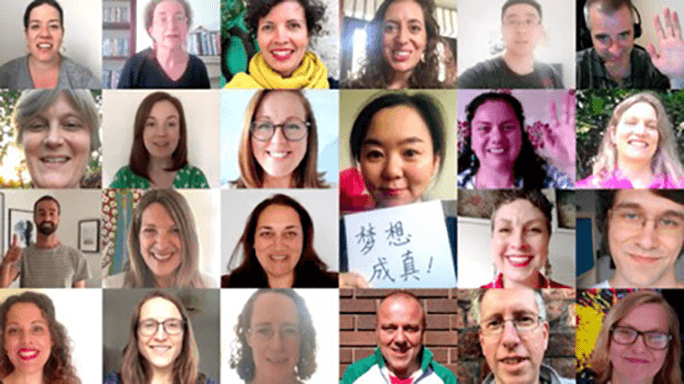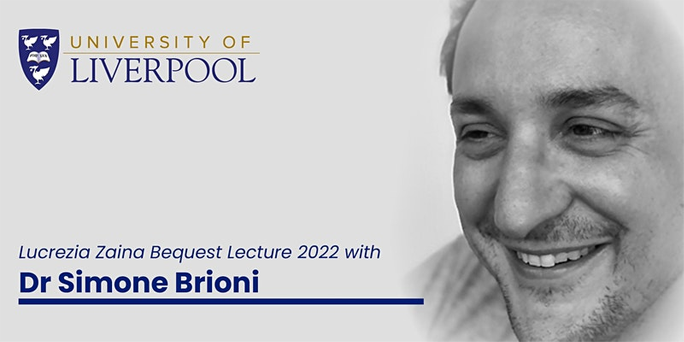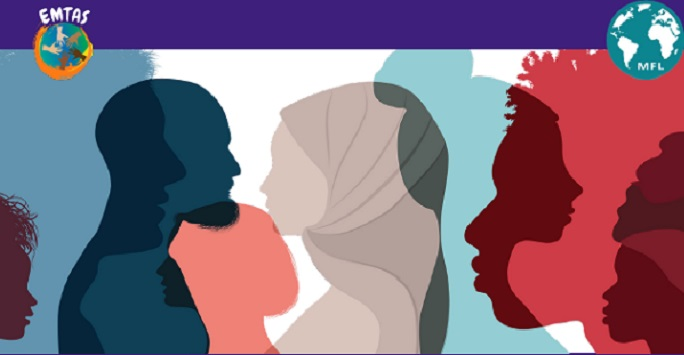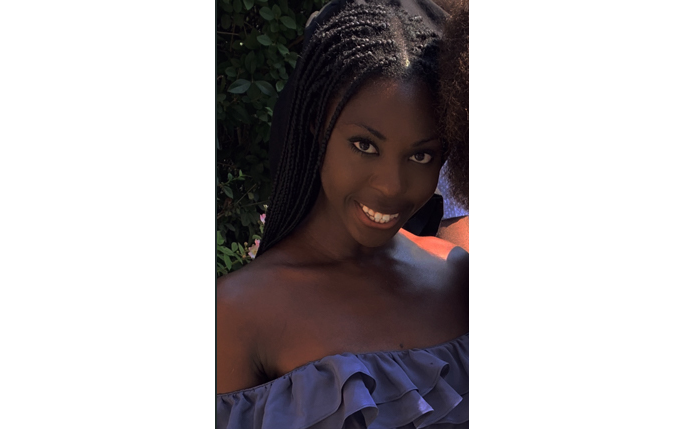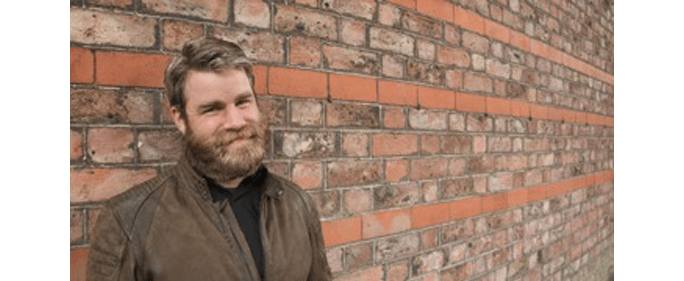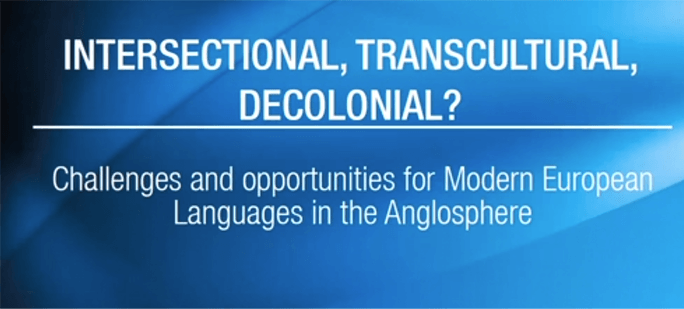Welcome from the Head of Department
We hope that you will enjoy reading about recent events and updates from the department. While the past two years have been among the most challenging we have experienced, we also have much to celebrate, including a new MA programme, high-profile public engagement events and prize-winning colleagues.
As you may have noticed, we changed our departmental name from Modern Languages and Cultures (MLC) to Languages, Cultures & Film (LCF) in July 2021, in recognition of the growing role that Film Studies plays within the department. The Film Studies programme offers a wide range of modules in international cinema, covering themes such as Italian crime films, German expressionism, innovations in Asian cinema, digital culture in the Americas, cinema and narratives in French Society, Spanish film and television, and much more. While departmental expertise in diverse languages and cultures provides access to a rich diversity of international cinema, the study of film in turn proves central to language-learning. Not only does it provide an immersive medium for teaching about the cultures and histories of different countries, but it also enables language-learners to hone essential aural and oral skills.
Our name change comes at a time when the importance of language-learning and intercultural communication has never been so critical. As the pandemic in particular has emphasised, we live in an increasingly interconnected world, in which communication and cultural understanding across societies is more important than ever before. All the more reason to reach out now to our alumni and build a strong network! Please do get in touch if you would like to share your experiences and help to encourage new generations of linguists and culturally sensitive experts. We look forward to hearing from you!
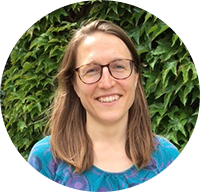
Professor Anna Saunders
Head of Department
YEAR ABROAD
We wanted to share with you an example of projects our students managed to achieve during their virtual placements in 2020/2021.
To read more about what our students are up to on their current year abroad, visit our blog.
Year 3 Virtual Placement at Languages Culture and Film in 2020/21 - Translating memory - Hannah's story
Hannah Wilson (BA Modern Languages: Triple) spent semester 1 on a Year 3 Virtual Placement or 3VP with the MLC research project ‘A Museum for Me’ led by Professor Claire Taylor with Dr Lucia Brandi, which works with the National Museum of Colombia to produce educational materials on memory and representation. Here, Hannah talks to the MLC blog about A Museum for Me product range, and her role as a 3VP intern.
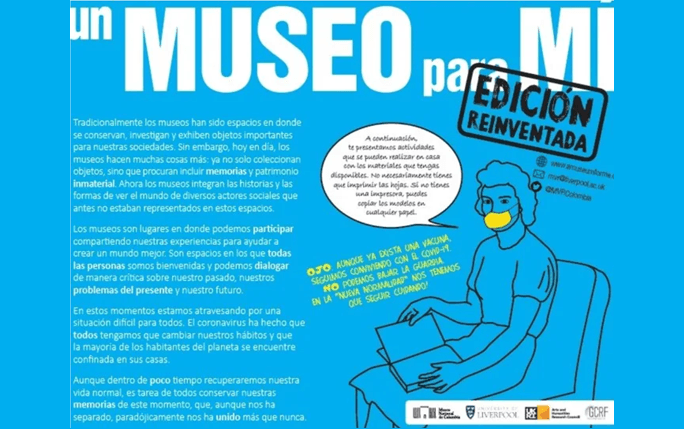
Speaking about her placement, Hannah said: "This last semester has been a really busy time for A Museum for Me because it has just launched six new products in both Spanish and English, as well as a redesign of its original mini-museum-making craft kits. All the materials are designed for conserving memories, documenting stories, and encouraging critical thinking around representation, visibility, and human rights. They will be piloted at the National Museum of Colombia (MNC), and then rolled out to a further 20 museums across the country, as part of the MNC’s capacity-building programme for community museums - you can hear María Mónica Fuentes Leal, from the MNC, talking about it here.

"As a 3VP intern I have gained so many new skills, e.g. writing tweets for an organisational account and preparing blog posts for a project website. I have done subtitling of videos and translated project documents, so I have been able to practice my Spanish, but also find out more about the work of the @MVRColombia project, uncovering truths of the Colombian conflict through the testimonies of affected women and children whose bravery I am inspired by. I have been heavily involved in the translation of the new English language products, and I’m really excited that they will shortly be available for UK groups and museums. The new A Museum for Me products are pictured above."
______________________________________________________
Year Abroad photo competition 2021
From L-R: 2nd place: Emma Thomas – Sunset in the South of France, 1st place: Veronika Prokopova – Spring in Vienna, looking through Magnolias at the Votivkirche, 3rd place: Petty Blackmore - Back of Libreria Acqua Alta, Venice
Every year the MLC Student Engagement Team organises a photo competition for final year students, who are invited to submit their photographs that showcase the countries they visited during their Year Abroad during the previous academic year.
______________________________________________________
NEW PROGRAMME
MA in Chinese-English Translation and Interpreting
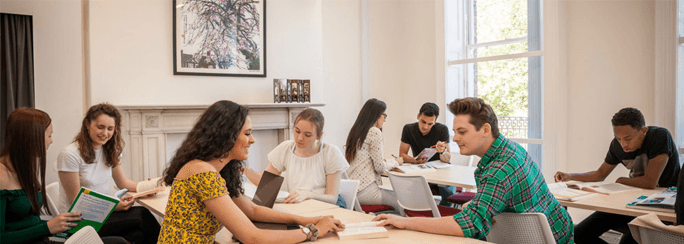
In 2020/21, despite the unprecedented situation, we successfully launched our MA programme in Chinese-English Translation and Interpreting at the University of Liverpool. This is the first MA programme of its kind in our department, aiming to train competent translators and interpreters as a direct response to the needs of our society.
Our MA programme features well-balanced coverage in both practice and theory and is characterised by intensive professional training in translation (e.g. commercial, journalistic, media, institutional, literary and scientific texts) and interpreting (sight translation, consecutive interpreting, simultaneous interpreting, and public service/liaison interpreting). Our modules are taught by experts in the discipline of translation and interpreting and teaching is conducted in a highly interactive, supportive and culturally diverse environment.
Our students will graduate from this programme with useful translation and interpreting know-how and techniques as well as a wide range of other transferrable skills, such as public speaking, active listening, note taking, critical thinking, academic writing, digital fluency and interlingual and intercultural communication.
______________________________________________________
EVENTS AND CELEBRATIONS
Iberian and Latin American Week 2021 and PRAGDA Film Festival
This year, we held the Peers Symposium in collaboration with the Universidad Autónoma de San Luis Potosí and had two speakers from Mexico: Yásnaya Elena Aguilar Gil, who discussed her research into Mixe language, history, and culture, and the author and activist, Dahlia de la Cerda, who led a workshop on writing from the margins.
In another collaboration with Mexico, the Conflict, Memory and Heritage research group welcomed Mexican social historian and sociolinguist, Dr Edmundo Hernández Amador, who talked about his work on memory and the role of the Nahua language in contemporary Mexico. In addition, we held a poetry reading and conversation with the Basque poet, Beatriz Chivite, a concert and Q&A with the Galician band, Ailá, and a discussion on the changing shape of audiovisual culture by Ernesto Pérez Morán.
Have a look at the programme here and make sure you don’t miss IBLAW 2022!
This event was run in conjunction with Liverpool’s own, made possible due to generous external funding. This enabled our department to offer a month of virtual film screenings from Spain and Latin America, such as the very moving Los Lobos (The Wolves, Samuel Kishi Leopo, 2019). Students also had the opportunity to introduce films, gaining real world insights into film festival organisation. You might be interested in browsing PRAGDA’s website.
______________________________________________________
Iberian and Latin American Week 2021 and PRAGDA Film Festival
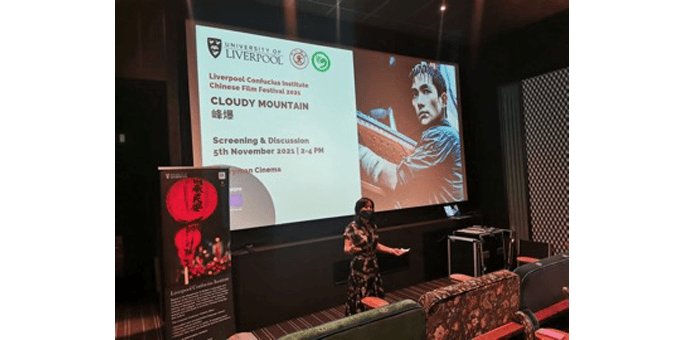
The very first edition of this free festival took place in November 2021 thanks to collaboration of The Confucius Institute, UK-China Film Collab and the University of Liverpool. Film lovers were invited to watch a selection of exciting films and participate in discussions. This year’s selection included Cloudy Mountain, A Little Bird Reminds Me and the Great Learning.
______________________________________________________
Celebrating Italian language and culture
The Lucrezia Zaina Lecture - A legacy in celebration of Italian language and culture
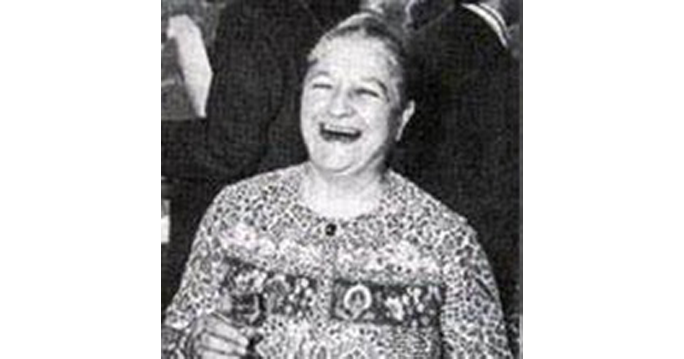
‘Lexie always hadthe best interests of her students at heart; she was loved by staff and students alike’. (LMS, 2009)
The University of Liverpool recently commemorated the 10th Lucrezia Zaina Lecture with a special discussion delivered by former Everton Football Club manager, Carlo Ancelotti. Since its debut, the lecture series has been delivered by many prominent celebrities including writer, architect, historian, film-maker and Venetian citizen, Count Francesco da Mosto, who presented the inaugural Lecture in March 2011.
These wonderful lectures have been made possible by valued alumna and colleague, Professor Lucrezia Zaina (BA Hons French 1943, MA 1947), who sadly passed away in 2008 having bequeathed a generous legacy to the University of Liverpool. Professor Zaina, also known as ‘Lexie’, was observed as an extraordinary personality and talented academic, whose ‘...kindness, enthusiasm and generosity were legendary’.
______________________________________________________
Lucrezia Zaina Bequest Lecture 2022 with Dr Simone Brioni 'Revitalizing History and Memory: Collaborative Experiences an inclusive re-evaluation of Italian symbols acknowledging multiple perspectives'
Wednesday 27 April 2022
5:30pm-7pm (BST), online
How is it possible to reevaluate Italian symbols in a more inclusive way that acknowledge the multiple, diasporic and postcolonial perspectives through which Italian culture is created, discussed, appropriated, and kept alive?
In an attempt to give an answer to this question, Dr Simone Brioni's lecture focuses on examples of three collaborative research experiences and artistic endeavors: a reading of how Somali diasporic writers have discussed Dante’s Commedia; a revisitation of Mantegna’s depiction of Black people in his Renaissance paintings; and a closer look at questions of memory, belonging and family heritage in colonial photography.
______________________________________________________
Italian week
The Week of the Italian Language in the World is an event promoted yearly by the cultural and diplomatic network in the third week of October. It focuses on a theme that acts as the leitmotif of a vast cultural programme to promote the diffusion of the Italian language. The initiative was launched in 2001 through the joint action of the Ministry of Foreign Affairs and International Cooperation and the Accademia della Crusca, which was subsequently joined by the Swiss Confederation, where Italian is one of the country's official languages.
During the past 18 years, the Week of the Italian Language in the World has ended up representing the Foreign Ministry’s privileged Italian promotion channel in terms of the number of activities simultaneously organised all over the world. This success story is due to the growing engagement of the Italian and Italian-speaking communities abroad, along with local cultural institutions and a host of writers, poets, artists, teachers and academics who have passionately enlivened all the past editions by taking part in hundreds of conferences, meetings, lectures, refresher courses, thus opening a cultural and intercultural dialogue with other writers, artists, intellectuals and representatives of civil society in a large number of Countries.
Since 2013, the theme of the week has dealt with the world of business and culture, highlighting the link between language and creativity.
The theme of Week of the Italian Language in the World 2021 was Dante, l’italiano: 2021 marked the 700th anniversary of Dante Alighieri’s death.
______________________________________________________
Event for MLF teachers
The Centre for Teaching Excellence in Language Learning (CTELL), in collaboration with Ethnic Minority and Traveller Achievement Service (EMTAS) and Modern Foreign Languages (MFL), which are teams within School Improvement Liverpool, invited local school teachers and university lecturers to their first joint event ‘Global Voices: an exploration and celebration of language’ at the University of Liverpool.
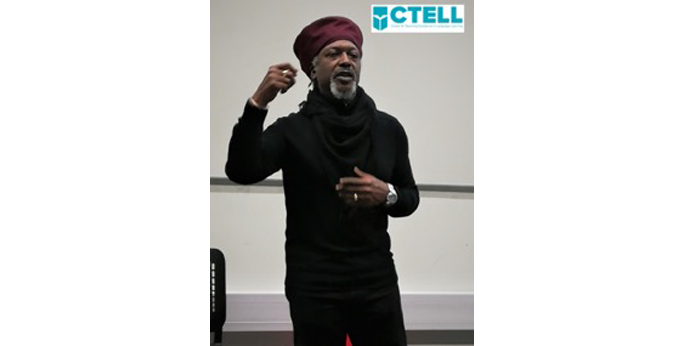
Plenary speakers Professor Tony Crowley, University of Leeds, performance artist Levi Tafari and Professor Florence Myles, University of Essex, talked about the role of variation in language (learning), a topic that will be further explored in upcoming CTELL events.
It was a joy to see how new connections were made throughout the day between school teachers and university lecturers in the vibrant discussions over coffee, pastries and lunch. It is hoped that this can become a regular event to inspire lecturers and teachers in the region.
______________________________________________________
RESEARCHERS AND RESEARCH PROJECTS IN FOCUS
Prizes and awards
Professor Charles Forsdick elected British Academy Fellow

The University of Liverpool’s James Barrow Professor of French, Charles Forsdick is one of 84 new fellows elected to The British Academy for 2021. Click here to read more.
______________________________________________________
New generation thinkers: Adjoa Osei, PhD Researcher, Latin American Studies, University of Liverpool
Adjoa Osei’s research is funded by AHRC and the Duncan Norman Scholarship, and focuses on twentieth-century staged performance and visual arts culture.
Her current project places transnational, relatively unknown, Afro-Latin American women artistes at the centre of international artistic and intellectual modernist practice, focusing on the period 1920 and 1945.
______________________________________________________
Researcher in Focus: Dr Christian Cooijmans
Our featured researcher of the month is Dr Christian Cooijmans, who is a British Academy Postdoctoral Fellow in the Department of Languages, Cultures and Film. Chris’ research explores the evolution and effects of Viking endeavours across western mainland Europe and examines how these activities were remembered and reinterpreted in the centuries to follow.
______________________________________________________
The Crime Writers’ Association Dagger Award for Crime Fiction in Translation
Dr Lyn Marven (Contemporary German literature) was longlisted for her translation of Elly by Maike Wetzel (2020), which is a novel described as a “gripping tale of grief, longing, and doubt”. Read more about the CWA Dagger Award here.
Interested in reading Lyn Marven’s translation of Maike Wetzel’s Elly? The first three to get in touch will receive a free copy signed by the translator! Just send an email to c.francois@liverpool.ac.uk.
______________________________________________________
Webinar on ‘Intersectional, Transcultural, Decolonial?
This webinar was co-hosted by our colleague Barbara Spadaro and Francesco Ricatti (Monash University) and explores the challenges, opportunities and practices for Modern Languages in the age of decolonizing the university. Click here to watch this webinar.
______________________________________________________
ALUMNUS IN FOCUS
Alumni profile: Simon Hodgson (BA European Film Studies & Modern Languages 2010)

German/English teacher at an international school in Berlin
The Department of Languages, Cultures and Film Studies recently caught up with alumnus Simon Hodgson to hear about how his career and how this was influenced by his time at the University of Liverpool:
“Years after graduating from the University of Liverpool, I still look back fondly on my time studying there. The idea of speaking a foreign language had fascinated me since my first German lesson at high school. I decided very early that my future career had to give me the chance to live abroad and speak a foreign language - I just didn't know quite what that career would be.
My degree in German and European Film Studies at Liverpool enabled me to combine my love of languages with my love of history and film by developing my foreign language skills and studying Europe's history through film while keeping my career options open. While the language courses improved my competency as a speaker of German, they also offered a glimpse into cultural life in German-speaking countries - both invaluable for a career abroad. The film courses gave me insights into the medium as a political tool used by European governments throughout the turbulent 20th century and also offered me a unique way of examining modern history in a more nuanced and international context than I had previously been used to. This knowledge would also become invaluable during my time working for a Berlin publishing house specialising in modern European history.
Without a doubt, the most unique experience of my course was the year abroad. While I could have chosen to study at a university in a German-speaking country, it was important to me to utilise the two semesters abroad to improve my spoken German while gaining work experience. I found a placement at a company comprising a publishing house and museum in Berlin. My time there was the perfect opportunity to put the knowledge and skills acquired in Liverpool to use. Not only was I given a chance to help conceive exhibitions on historical topics I had learned at university, but I was also able to put my language skills to use on translations. I saw texts make their journey from Word documents to printed books and exhibition texts - not something every undergraduate gets to do. I was offered a job by the company and returned to work for them the day after my final exam in Liverpool. My foot was in the door, and from here on, I translated for several publishers throughout Germany. I also translated for the Berlin International Film Festival for a couple of years. There couldn't be a more fitting job for a graduate of German and Film.
After a few years of translating, my interest in languages and language didactics took a new turn when starting a family in a bilingual setting. With higher education in Germany being free to EU nationals (this was pre-Brexit), I went on to study for an MA at Berlin's Freie University in teaching German as a Foreign Language and German Cultural Studies. I was able to redirect the language skills and learning methods I had gained at Liverpool and apply them in an altogether different setting - this time with me doing the teaching. Like my undergraduate degree in Liverpool, my MA meant a period of work and study abroad. I received a DAAD scholarship to teach German at Peking University, Beijing. When I arrived in Liverpool in 2005, I certainly wouldn't have guessed that I would one day be standing in a lecture theatre in Beijing teaching German to Chinese undergraduates. After graduation, I took the German route into teaching and now teach English and German at an international school in Berlin.
Without a doubt, Liverpool was my springboard to a varied and exciting career path. My degree certainly helped me realise my teenage ambitions to live abroad and earn money in foreign languages. My message to anyone reading this who might be hesitant to start a course in modern languages would be this: Now more than ever, the UK needs language and cultural ambassadors, and a course at Liverpool will stand you in good stead to pursue such a career. Studying modern languages is certainly no easy task, but the rewards (and career opportunities) can be endless. There were definitely moments during my time in Liverpool I needed help and guidance with the work. However, the support you will get in the languages department is second to none. Studying a language at university is a relatively intimate experience, something from which I definitely benefited. The learning groups are small compared to other departments, which means the relationships with students and teaching staff are tight and productive. Eleven years after graduation, I still get invited for coffee by staff when I'm in Liverpool. Finally, I would advise you not to worry too much if you don’t know what you want to do after university. I have translated and taught (both seemingly obvious routes for a language graduate), but I also used my degree and the skills I acquired along the way to get jobs in marketing and journalism before settling down.”
______________________________________________________
Wanted: Your Stories
Did your degree in Modern Languages enable you to land an exciting job? Are you using some of the language and/or transferable skills acquired during your studies at Liverpool in your job? Do you live within commuting distance of Liverpool and want to inspire new generations to study languages?
If this sounds like you then we would love to hear from you! We are looking for alumni to get involved in career related activities and events organised for our current students who would benefit greatly from your experience.
______________________________________________________
For more information please contact Claudia François, Lecturer in French and Outreach and Widening Participation Lead in the Department of Languages, Cultures and Film at: c.francois@liverpool.ac.uk.
Join us on social media: Facebook, Twitter and Instagram
Back to: Alumni
